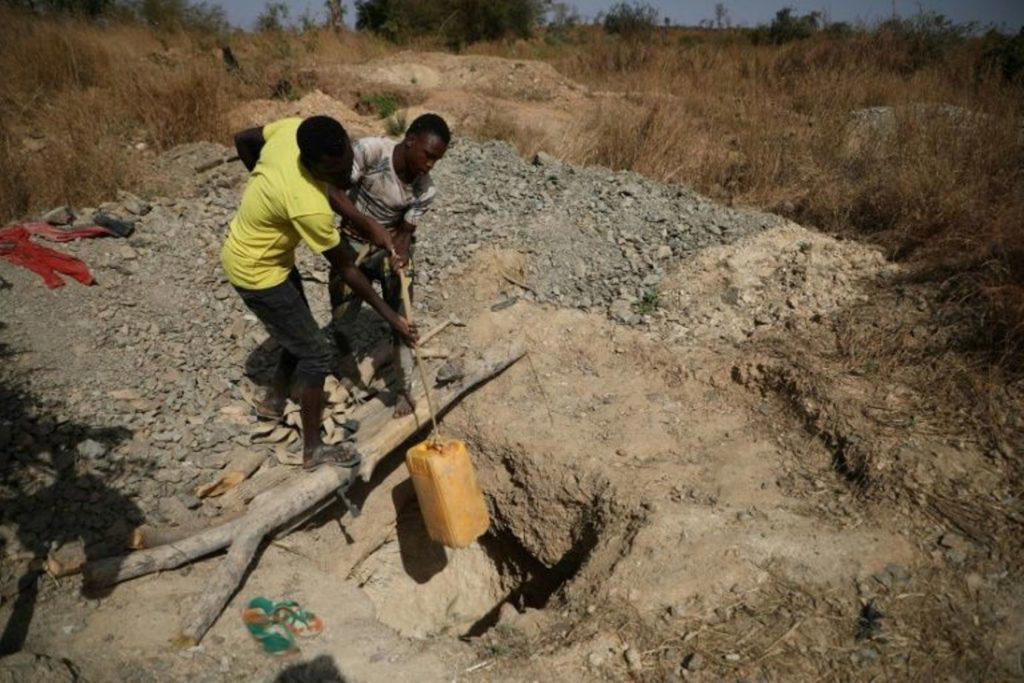By Marie-Therese Nanlong
To improve the livelihoods of miners, support the government’s efforts to raise revenue, and ensure sustainable national development, miners in Plateau have received training on best practices that enhance their trade.
The two-day workshop with the theme: “Enhancing safety, sustainability and community development in mining,” was organized by the Petroleum Technology Development Fund (PTDF) and the University of Jos in collaboration with the Professorial Chair in Geology and Mineral Science.
Addressing the participants, PTDF Executive Secretary Ahmed Aminu, represented by Deputy General Manager of Projects Paul Ohabuike, said that parts of the training aim to ensure that artisanal mining is no longer seen as risky, but instead becomes a driver of resilience, prosperity, and shared legacy.
He explained, “The solid minerals sector holds enormous promise for jobs and growth, but that promise will only be realized when miners are fully equipped to operate responsibly, productively, and in line with international standards.
“The mandate of PTDF is about human capacity development, institutional capacity development as well as research and innovation. This programme falls under research and innovation… The aim is to empower miners with modern mining techniques and also educate them on safety issues and how to sustain the industry.”
He added that the miners are expected to adopt safety practices, adhere to standards, improve environmental management, and enhance the ecosystem and community livelihoods where mining activities take place.
Also speaking, Professor Nuhu Samaila, the PTDF Professorial Chair, noted, “Mining is not just an occupation, but a lifeline for thousands of families, yet the benefits of mining can only be fully realized when economic gains are balanced with environmental stewardship and social responsibility.”
He further acknowledged, “Artisanal and small-scale mining continues to provide jobs and income, but this also comes with risks like unsafe practices leading to accidents, health challenges from dust and exposure to radioactive elements, land degradation, water pollution, and conflicts within communities.”
He stressed the focus of the workshop, which was safety and health; sustainability and environment; and community empowerment, was consciously mapped out to “improve the livelihood of miners and support the governments’ efforts in revenue generation, and pursuit of national development.”
Earlier, the Vice-Chancellor of the University of Jos, Professor Tanko Ishaya, was represented by Professor Samuel Odeh, the Dean of Basic Medical Sciences, who noted that the event reflects the power of collaboration among stakeholders, where education, research, and community empowerment can transform the extractive sector.
A miner, Mr. Nnadozie Nwosu, urged the government to pay more attention to miners and reduce the bureaucracies that have long plagued the mining sector, saying, “Many miners today are discouraged by multiple taxation and other burdens placed on them.
“If government can listen more closely, adopt global best practices, and learn from developed mining nations, Nigeria can generate significant revenue, potentially more than what we get from oil.”
The miners were taken through different sessions, including Nigerian Gemstones: Value addition for local and international markets, value addition to artisanal mining, the role of geoscience professionals in promoting responsible and sustainable mining, gender barriers and challenges in mining, and opportunities for the artisanal and small-scale miners in the solid minerals development roadmap.
The post Plateau miners trained on sustainable mining, global best practice appeared first on Vanguard News.

